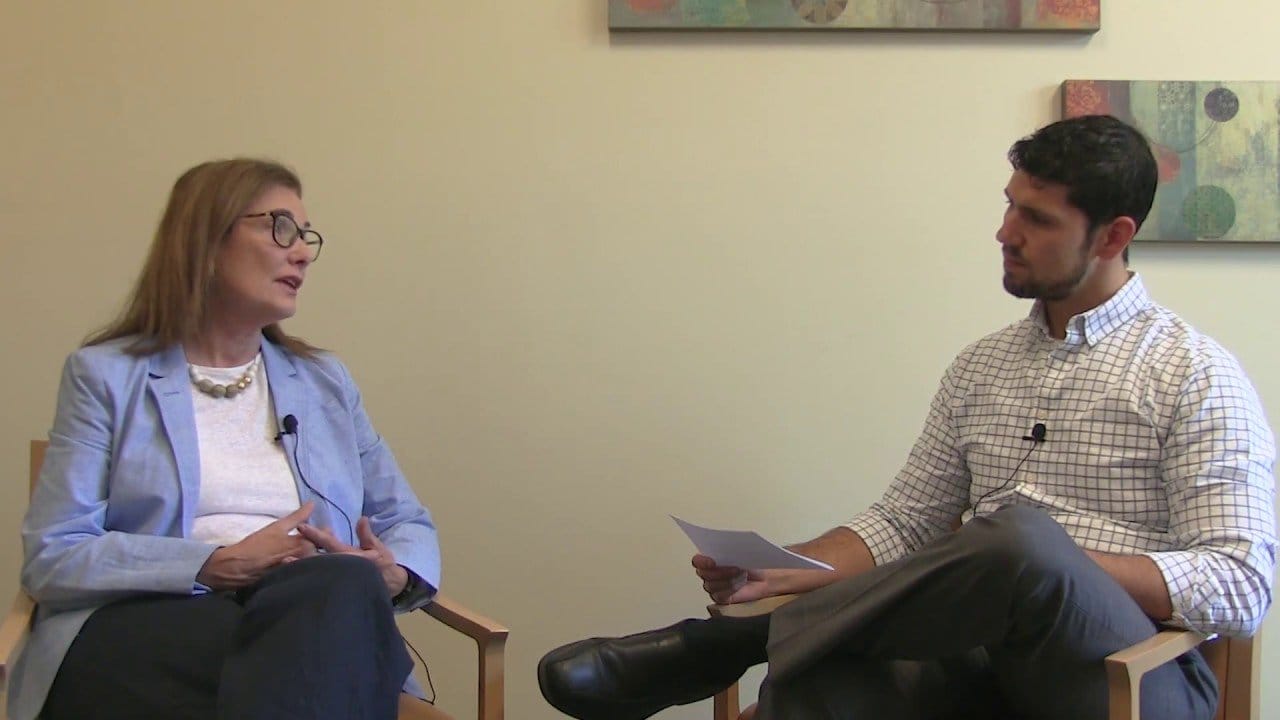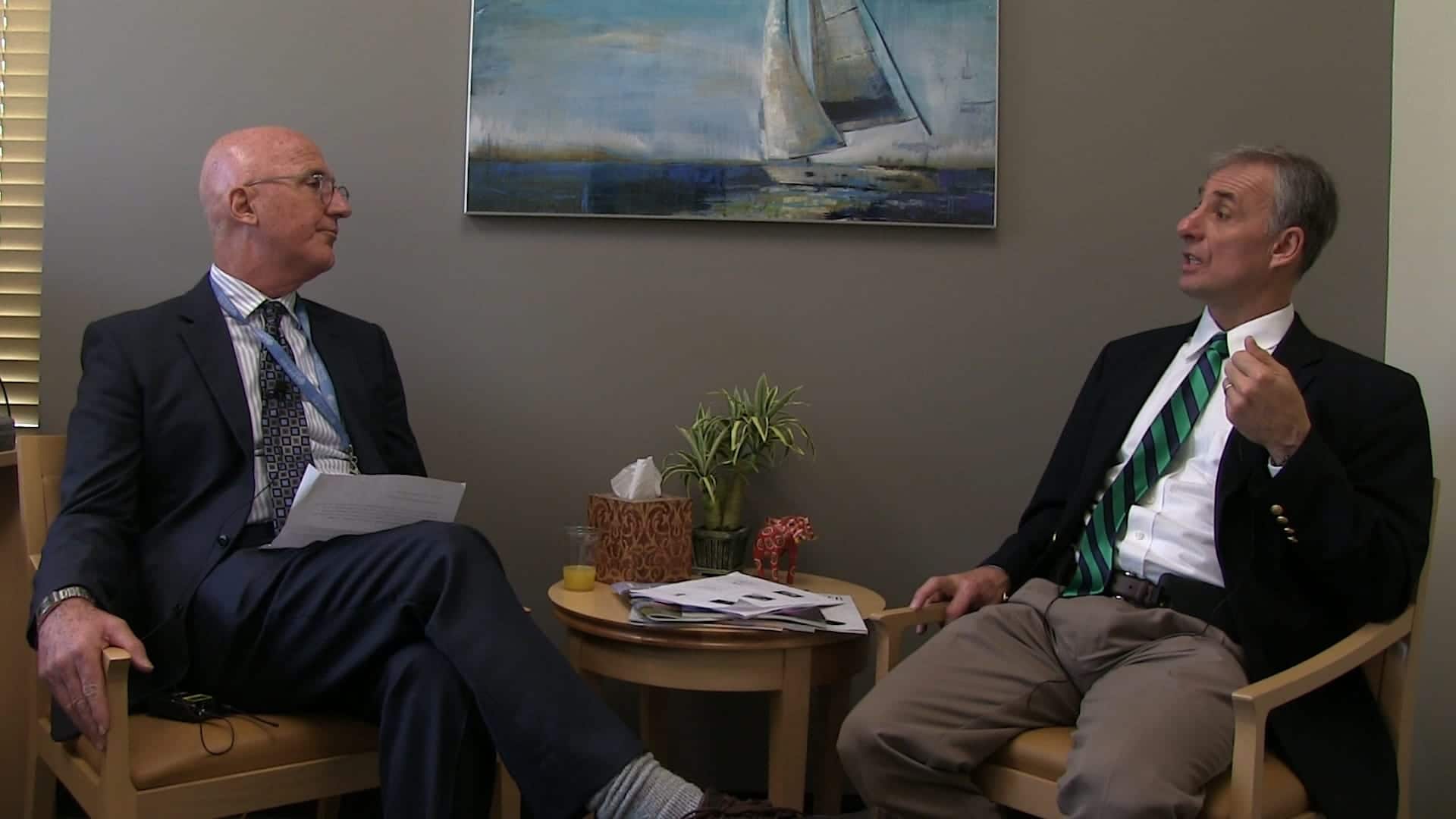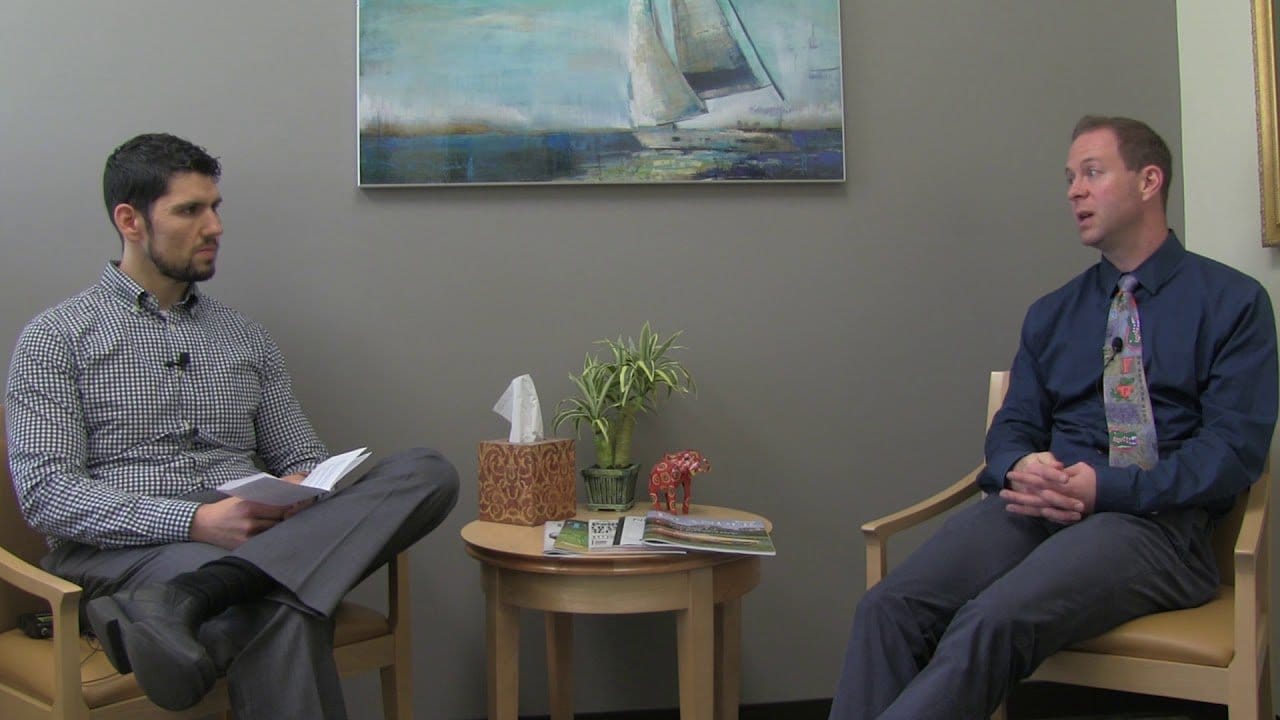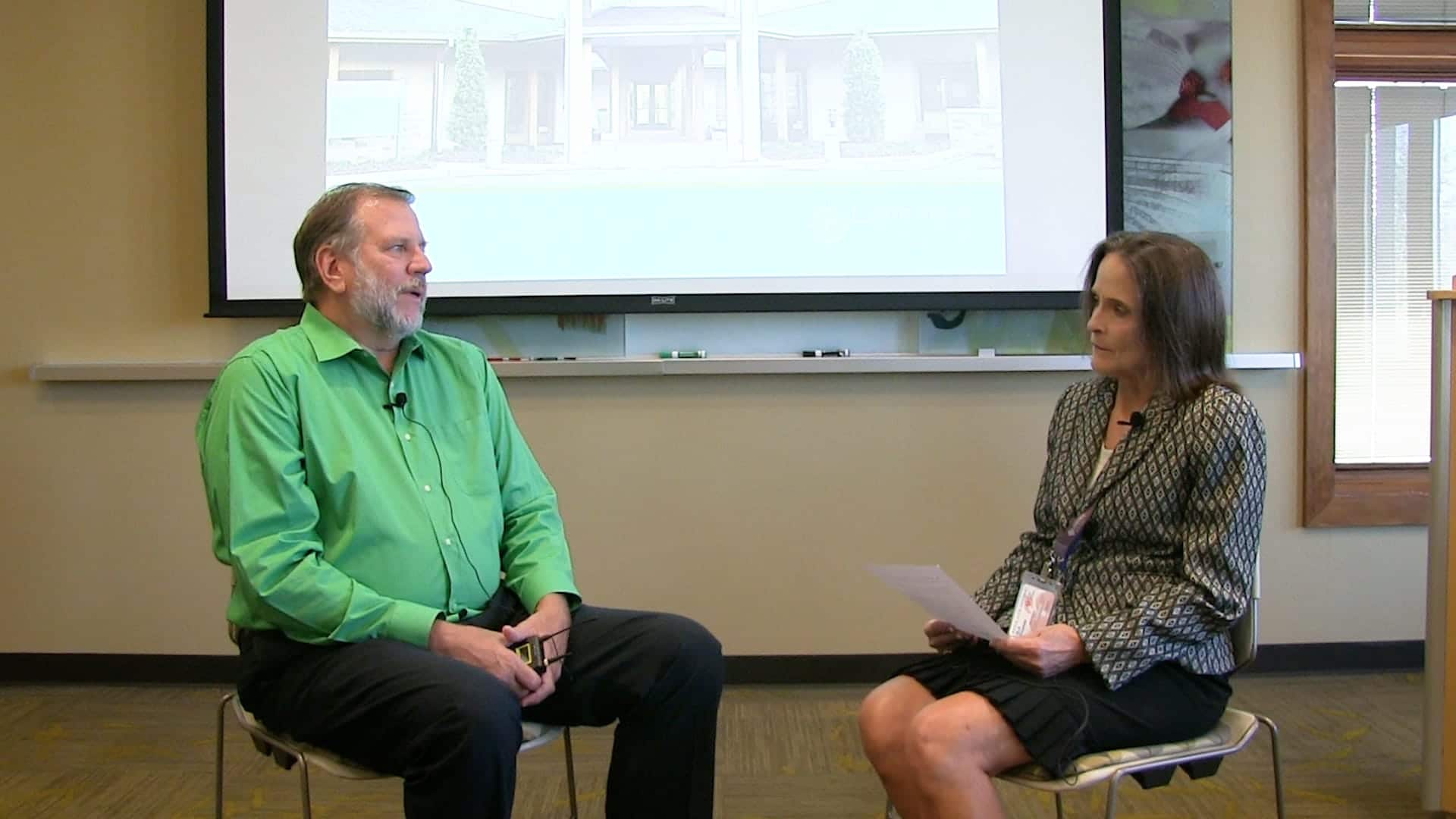Exercise can play a key role in the success of addiction treatment. In this podcast, exercise physiologist Lauren Stobbie discusses the exercise program at Lakeview Health. The program can be adjusted for patients based on their age, level of fitness or injuries. Exercise can help patients learn to feel good without drugs and can help them through the stress of early recovery.
Podcast Transcript
Gina Thorne: Hello, everyone, this is Gina Thorne and I am with Lakeview Health and we welcome you to the Lakeview podcast series. I’m joined today by Lauren Stobbie, our exercise physiologist here at Lakeview. Welcome. Lauren: Hi, thank you. Gina: We’re here today to talk little bit about the exercise program that we have here at Lakeview and the role that it plays with our patients in their early recovery, but before we do that, I would like to talk with you a little bit about your background. What got you into physical fitness and exercise? Lauren: I would probably say it started when I was real young. My parents pretty much said you have to pick a sport–it doesn’t matter what you’re doing, but you have to do something active. So I think my love for fitness really started around age 14. I joined the girl’s weightlifting team at my high school and I just fell in love with the program and with lifting and being active. So, from then on out I just sought out more things to do to stay active, to be involved in fitness, especially in the community. I knew going into college I wanted to continue on in that fitness route. So I went ahead and I went to the University of Florida and I got my degree in applied physiology and while I was there I worked in the on-campus gym as a fitness supervisor, and did a few internships in Gainesville within the fitness community, worked in a retirement community doing rehab with their patients. And then I went on to graduate school and got my degree in exercise science and did some specializing in strength and conditioning and did a few internships within the strength and conditioning community. I did one at UF and one at UCLA working with their athletes, so that was an awesome opportunity and that led me here. Gina: That’s awesome. Well, I’m really excited that you’re here and I seems like you got tremendous experience in just the whole concept of exercise and fitness. Many facilities say they have an exercise program. Some of them include going to the gym and allowing their patients to go to the gym, which we used to do with our Lakeview patients. But now things are a little bit different now that you’re on board. So how would you describe the work that you do with our patients at Lakeview? Lauren: So, I meet with the patients five times a week. We meet Monday through Friday. We have and men’s exercises class and a women’s exercise class and we just meet in one of the large group rooms. We have a few different types of equipment, we have some kettlebells, med balls, and we have resistance bands and that makes up the majority of the equipment we use. I also do a lot of body weight exercises with them. As far as the men’s programming goes, it’s a mix between some strength exercises and some cardio exercises. With women, we do a little of full body training–I like to call it kind of cross-training type exercises, we do a lot of core work. It’s more boot-camp style. I like to make sure that it’s always different, offer a lot of variety, a lot of different types of exercises, so they are never ever going through the same workout while I’m here. Even while I started, they were still going to the off-site gym and what I found is that they were coming up to me saying, ‘we feel we’re getting more from the exercise programs we’re doing here, versus going to the gym. We don’t really know what we’re doing,” so it’s nice to be able to take them through an actual workout. Gina: That’s fantastic. Do you find that you do some individualized work with them? Do you try to individualize some of their work out to be responsive to their level of fitness? Lauren: Absolutely. We do get–I see a lot of the patients come in, they either have shoulder injuries or lower back pain or previous knee injury, so being able to modify exercises for them it’s something that’s definitely done. Especially since a lot of times the classes–they range from 25 year olds up to 60 years old. You can’t have them doing the same type of work out so being able to individualize those workouts that happens every single day and both of them are still being able to get a great workout. Gina: That’s great. Well, do you believe that fitness plays a key role in helping people stay sober and if so, how come? Lauren: Definitely. I’ve seen it with my own eyes and I’ve also had the patients tell me they feel so much better after they did the workout, they say ‘this is the best they’ve felt in years.’ Any time you’re exercising you going to release those endorphins, release those neurotransmitters and that just allows the patients to kind of experience that pleasurable state naturally without the use of alcohol or drugs. It also helps them with dealing with their feelings of stress, anxiety, depression, which they definitely go through, so being able to release those is a huge benefit of the exercise program. And there’s also just been a ton of research done within the exercise community that has shown that patients who participate in an exercise program while they are in rehab will have a better success afterward. Gina: Yeah, it gives them something else to channel when they finish treatment, which is so important. Well, what do you think the patients gain from starting an exercise routine in early recovery? Lauren: I would say most importantly it would just be an outlet for their emotions, especially in early recovery where they are experiencing the frustrations and the anxiety and the stress–to be able to put that somewhere is a huge therapeutic benefit them. So a lot of the times when they come in to exercise and say ‘I had such a bad day,’ they go through the workout and afterward they tell me ‘I feel so much better’ and that’s so important for them. Also, exercise is just a huge part in living a healthy lifestyle, so for them to be able to come into rehab and make part of their routine whether they are exercising 3 to 4-5 times a week and to be able to transfer that over when they leave and continue making exercise part of the routine is huge. Gina: So, basic things who are not dealing with substance abuse should be doing anyway but obviously the benefit of what we’re seeing our patients do can carry them on into their recovery well after they leave us. That’s great. Lauren: Definitely. Gina: So what kind of support do you help patients with before they discharge from treatment? Lauren: So before they leave, usually about a week before they leave, they meet with me and we talk about what their goals are: So whether they are trying to decrease their body fat, or whether they want to put on some muscle mass, or whether they want to train for a 5k race, we talk about what their goals are we also go over what type of equipment they have. Do they have some equipment at home or are they going somewhere where they are not going to have any gym equipment, do they have access to a gym or not, so we go through all of that. We also talk about how many days a week they can dedicate to fitness. They definitely busier–recovery comes first, some of them are going back to school, they have jobs they have families so whether you have 2, 3, 4 days that you can actually commit. And then from there I write them up an individualized exercise program that fits toward their goals and also sports nutrition program to go along with that. Gina: That’s fantastic, that’s great. Well, it sounds like you’ve been doing quite a bit in just a short period of time, you’ve been with us a little over 6 months and the feedback I’m hearing from our patients is that they are so grateful to have you here as an expert to help them with that new road to recovery by adopting that healthy lifestyle. My last question is, what do you think sets Lakeview Health apart from other treatment programs? If someone were listening to us today and they were trying to make a decision about coming here, versus another location, what would you say to them? Lauren: I would just tell them about the high quality of care you can receive at Lakeview, even the individualized treatment programs and the different tracks we offer, depending on what the patient’s wants and needs are. All of the different auxiliary programs we offer–there is absolutely something for every single person, so if you’re not into exercise we offer music therapy if you’re not into that there is art therapy, recreational therapy. So there definitely is something for every single person and that’s so important. And I had patients that come up to me here, whether they heard from other people who have been here in the past and they just say ‘if I need to turn my life around, then Lakeview is the place to go.’ Gina: Well, thank you for taking then time to talk with us today. We’re really excited to have you on board at Lakeview. And if anyone else is interested in hearing more about Lakeview Health, we encourage you to visit us at our website at Lakeviewhealth.com, that’s Lakeviewhealth.com, or you could call us at [Direct] . Thank you.




